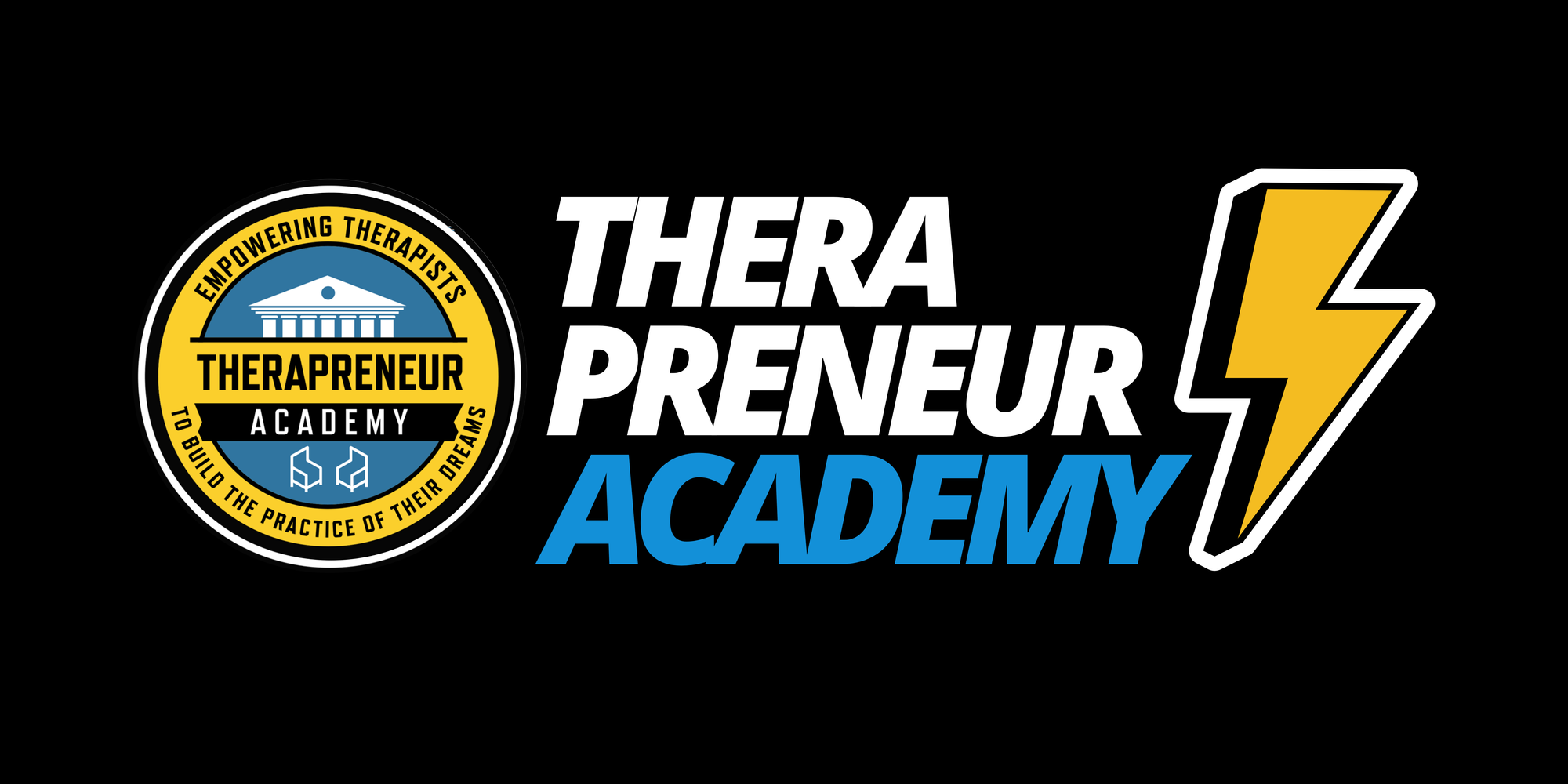Creating a Client Friendly Therapy Website that Attracts New Clients

In today’s digital age, your therapy website is more than just an online placeholder, it’s your digital office. It's the first point of contact for potential clients seeking mental health services. A professional, user-friendly website not only showcases your expertise but also helps you attract and convert your ideal clients.
Whether you’re just starting your private practice or looking to revamp your online presence, this guide will walk you through the key elements of building an effective therapy website.

Why an Effective Website is Crucial for Therapists
Your Website as Your Digital Office
Your website serves as the virtual front door to your practice. Potential clients will often visit your site before deciding whether to book a session. A well-designed website:
- Creates a strong first impression, showcasing your professionalism and approachability.
- Offers essential information about your services and specialties.
- Builds trust and credibility, encouraging potential clients to take the next step.
Benefits of a High-Quality Therapy Website
- Attract Ideal Clients: A clear, optimized website speaks directly to your target audience, helping you fill your caseload with clients who align with your specialties.
- Build Trust and Credibility: Testimonials, credentials, and a clean design instill confidence in potential clients.
- Streamline Client Acquisition: Your website simplifies the process of booking appointments or reaching out for inquiries.
How Websites Impact Practice Growth
- SEO Optimization: A well-optimized website helps you rank higher on search engines, driving more traffic from local searches.
- Marketing Integration: Your website acts as a hub, connecting social media, directories, and Google My Business to expand your online reach.
Key Elements of an Effective Therapy Website
Clear and Professional Design
A clean, simple design ensures your website is easy to navigate and visually appealing:
- Use calming colors and professional images that reflect your practice’s tone.
- Ensure your site is free from clutter, making it easy for clients to find what they need.
- Prioritize accessibility, with clear fonts and intuitive layouts.
Compelling Home Page
Your home page is the first thing visitors see, so make it count:
- Welcoming Message: Start with a friendly introduction that reflects your tone and values.
- Specialties: Highlight your areas of expertise, such as “Anxiety Therapy” or “Couples Counseling.”
- Call-to-Action (CTA): Encourage clients to take the next step with phrases like “Schedule a Free Consultation” or “Contact Us Today.”
About Page That Connects
Your about page should showcase your professional qualifications while making a personal connection:
- Credentials: Share your training, certifications, and experience.
- Personal Touch: Explain why you became a therapist and what inspires your work.
- Professional Photo: Include a high-quality headshot to build trust and relatability.
Services Page That Speaks to Client Needs
A well-structured services page helps clients understand how you can help them:
- Clear Descriptions: List your services (e.g., “CBT for Anxiety” or “Trauma Therapy”) with concise explanations.
- Client Outcomes: Highlight the benefits of each service and how they address client concerns.
- Scannable Format: Use bullet points or FAQ sections for easy readability.
Contact Page for Easy Access
Make it simple for potential clients to reach out:
- Contact Form: Include fields for name, email, and a brief message.
- Contact Information: List your phone number, email, and office address (if applicable).
- Google Maps Integration: Embed a map for easy navigation if you have an in-person practice.
Designing for User Experience (UX)
Mobile-Friendly Design
With most clients browsing on mobile devices, responsive design is essential:
- Ensure your website adjusts seamlessly to different screen sizes.
- Use large buttons and easy-to-read fonts for mobile users.
Easy Navigation
- Use a clear menu with intuitive labels like “Home,” “About,” “Services,” and “Contact.”
- Avoid overwhelming clients with too many options; keep navigation simple and focused.
Fast Loading Times
- Slow-loading websites can deter potential clients.
- Use tools like Google PageSpeed Insights to optimize loading times by compressing images and minimizing unnecessary code.

Leveraging SEO to Attract Clients
What is SEO, and Why Does it Matter?
Search Engine Optimization (SEO) ensures your website ranks higher on Google and other search engines. By improving your website’s visibility, you make it easier for potential clients to find you online.
Keywords for Therapy Websites
Use relevant keywords to help clients discover your services:
- Include terms like “anxiety therapist in [city],” “trauma therapy near me,” or “online counseling.”
- Use long-tail keywords that reflect specific client needs, such as “stress management for college students.”
Local SEO Tips for Therapists
- Optimize for Local Searches: Mention your city, state, and region throughout your website.
- Google My Business: Create a profile and link it to your website for better local visibility.
- Local Directories: List your practice in therapy-specific directories like Psychology Today.
Blogging for Better SEO
Writing blog posts improves your website’s search ranking and engages potential clients:
- Share articles on topics like “5 Strategies to Manage Anxiety” or “How Therapy Can Help After a Breakup.”
- Naturally incorporate keywords into your posts to improve search visibility.
Building Trust and Encouraging Engagement
Using Testimonials and Reviews
Showcase client feedback (with consent) to establish credibility:
- Highlight anonymous testimonials that speak to your effectiveness and professionalism.
- Use reviews to address common concerns and showcase client success stories.
Showcasing Credentials and Affiliations
- Display your certifications, memberships, and licenses prominently on your site.
- Include any awards or recognitions to enhance your authority.
Creating Engaging Calls-to-Action (CTAs)
- Use actionable phrases like “Book Your First Session” or “Contact Us to Learn More.”
- Place CTAs strategically throughout your site, such as on the home page and services page.
Tools and Resources for Building Your Website
Choosing the Right Website Platform
- WordPress: Offers maximum customization and scalability.
- Squarespace: Great for beginners, with user-friendly templates.
- Wix: Ideal for small practices needing quick, simple setups.
Hiring a Professional vs. DIY
- Hiring a Designer: Best for creating a unique, high-end website tailored to your brand.
- DIY Platforms: Cost-effective options for therapists with basic technical skills.
Essential Plugins and Tools
- Appointment Scheduling: Use tools like Acuity or SimplePractice to streamline bookings.
- SEO Optimization: Plugins like Yoast SEO can help you optimize your content.
- Analytics: Google Analytics provides insights into site performance and user behavior.
Maintaining and Updating Your Website
Regular Updates for Relevance
- Update your services, contact information, and availability regularly.
- Add new blog posts or resources to keep your content fresh.
Monitoring Performance
- Use analytics tools to track metrics like page views, bounce rates, and conversions.
- Adjust your content and design based on user behavior.
Staying Secure
- Protect client data with SSL certificates and strong security protocols.
- Back up your website regularly to prevent data loss.
Your Therapy Website as the Foundation for Growth
A professional, user-friendly website is an essential tool for mental health therapists looking to attract clients and grow their practice. By focusing on clear design, compelling content, and strong SEO, you can create a website that not only showcases your expertise but also builds trust and converts visitors into clients.
Take the first step today by evaluating your current website or starting fresh with these principles in mind.
Ready to grow?
Ready to take your career or private practice to the next level?
We are currently building the #1 Community for Therapists. With our recent launch, our goal is to have at least 1000 ambitious like-minded therapists in "Therapreneur" by the end of 2025.
Click the link here to find out Why Every Therapist Needs a Community 👈


